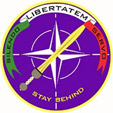ORIGINAL: golden deliciousORIGINAL: Trick37
In the urban environment, we wouldn’t have placed too many tanks into the towns and cities, thus leaving them to fight in the open spaces, where they’re meant to be.
That's all very well, but 1980s west Germany was heavily built up, especially as you head towards the Rhine.
That’s quite true…..as it is today. However, if we had to fight with our backs to the Rhein, then we would have been in trouble. Yet, getting to the Rhein would have been the question for the Soviet troops…..was it better to go the northern, southern or central (through Fulda) route? I think that’s why, after the fall of the Wall, the Russians declassified their plans of attack, and it called for the northern route since there were far less “natural defenses” (i.e. like through the Fulda Gap) up there where we could reek havoc on their forces.
ORIGINAL: golden deliciousORIGINAL: Trick37
True, and I’m not really arguing that. However, the Soviets would’ve been taking more and more losses than NATO would have.
Possibly. But remember Russia took tens of millions of losses in the Second World War and still had a huge army at the end of it. Their whole society was just much better geared to producing a mass army at short notice than any of the NATO countries.
True, yet we also have to understand that the Soviets couldn’t have done it with the forces that they had in the forward locations (East Germany, Czechoslovakia, and Hungary) alone. They would’ve had to have moved extra forces in from the Ukraine, Belarus, and Russia itself. Getting them here would’ve taken time, too, as would’ve NATO getting reinforcements to the front. In addition, our ability to interdict those forces either during ground transportation, or while on the trains, would’ve far exceeded Russia’s ability to take out our reinforcements while on the way. This isn’t to say that we wouldn’t have taken losses, or that they wouldn’t have gotten any extra units into Theater, but I don’t think they would’ve gotten enough to the battlefield to make a difference and/or to make that all-important final push to the Rhein.
Now, if the Soviets had started moving forces (i.e. under the guise of “exercises”), like the book The Third World War, August 1985 (by General Sir John Hackett, et al) gave the scenario, then NATO would’ve noticed this and started the REFORGER to Germany ASAP. This would not only have given us the added movement of reinforcements by air (to fall on POMCUS sites) or by sea (bringing their equipment with them), it would’ve also given us time to federalize and call up the National Guard and Reserves, and to get them moving over (obviously that would’ve taken a bit longer, but….). It would’ve also given us, if needed, the time and ability to call our Ready Reserves (former soldiers on an inactive Reserve status), and to even initiate our planned-for Selective Service recall. (The draft may well have had to be initiated, too.) True, it would’ve taken time, and hopefully it would’ve been over before they were needed, but that could’ve been a possibility.
Those were just two examples of scenarios, as would have been put in to motion by possible Soviet attack scenarios.
ORIGINAL: golden delicious
I think the situation in the medium term would be analogous to the first Chinese offensive in Korea; the Americans have better weapons, total air superiority and uncontested control of the sea. But on land they were just swamped. There was nothing they could do except pull back and regroup once their attackers had outreached their supply lines.
Naturally the US Army was better prepared in the 1980s than it was in 1950. But I think the same thing could have occured.
True. However, we must also remember that there was a huge mistake that occurred in 1950, when the Chinese entered the Korean war---namely MacArthur not taking their threats seriously, not anticipating the Chinese actions, and not believing that the Chinese could’ve moved 300,000 troops into North Korea under the cover of darkness. (Note, Patton would’ve figured this out, as he did when the Germans were about to attack in the Battle of the Buldge.)
As for the same thing to have occurred in the 1980s, yea possible, but not likely due to our much better intelligence-gathering capabilities. It would’ve been almost impossible to catch us with our pants down, even if the Soviets had attacked straight out of their barracks (which was another scenario that I didn’t discuss above).
ORIGINAL: golden deliciousORIGINAL: Trick37
I’m not saying, either, that it would have been a clear-cut victory (sorry if I made it seem that I thought that way). It would, indeed, have been a nasty fight, with unprecedented losses on both sides. I think that the Soviet attack would’ve fizzled at the last minute, just short of their goals. I’m also confident that NATO would’ve been able to counter-attack, which would’ve reeked havoc in their rear areas, thus cutting off supplies and forcing them to seriously consider a “fighting retreat” to try to reestablish the lines (which I think would’ve failed).
I would think that the NATO counterattack would take years to reach large scale proportions, and would not be the "classic" breakthrough and exploitation, but rather a grinding battle to annihilate the countless divisions that the Russians would have been able to throw into the battle.
That's assuming no diplomatic solution was reached. I think that with a) Russia aware that she will inevitably lose but b) NATO unprepared to take two million casualties to win, it would either be that or a nuclear exchange.
I disagree. I took part in the last big REFORGER in 1988, when we actually moved soldiers and equipment from the States to Germany for the exercises (I came over from Fort Riley, Kansas with the 1st Infantry Division). This was a Corps-on-Corps action, with units that were stationed in Germany making up one Corps, and units that came over from the States making up the other (obviously with German, Canadian, and British forces, too). We got our Corps over here within the allotted 7 days, fell onto our POMCUS site equipment, and deployed to our stations within another weeks. This is what was planned for, and done. We had enough equipment for another Corps here already, and that along with the 3rd Corps from the States (bringing their stuff over by ship) would’ve been enough for a counterattack of the size enough to stop the Soviet advance and at least start negotiations for peace.
I still think that a nuclear exchange would’ve been unlikely as of 1979, unless of course the NATO commanders panicked and gave in to the pressures from their subordinate commanders/politicians to use them. (We know that the Germans would not have wanted the use of nukes on their own soil.)











